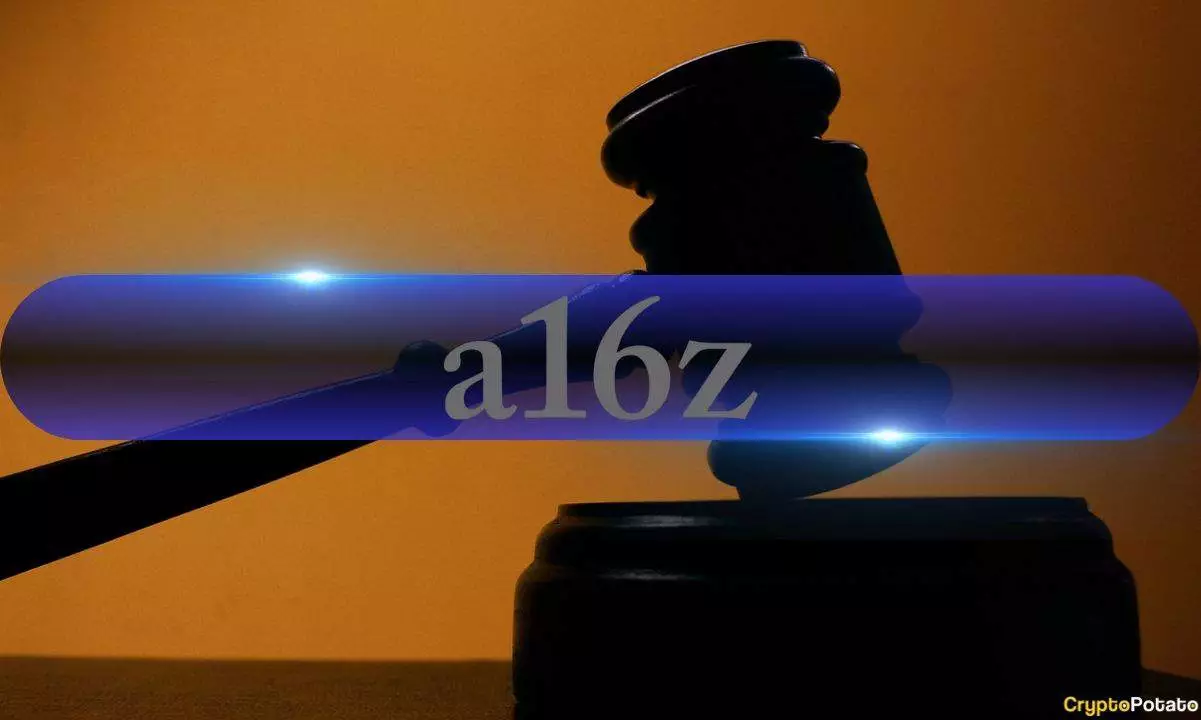The intersection of cryptocurrency and regulatory frameworks has increasingly become a point of tension in the United States. The introduction of a broker reporting rule by the US Treasury and the Internal Revenue Service (IRS) has sparked significant backlash from key industry leaders, including Michele Korver, who heads regulation at Andreessen Horowitz’s blockchain division, A16z Crypto. Korver’s vehement opposition underscores a broader concern that this regulation endangers the innovative potential of decentralized finance (DeFi) and could stifle progress in a sector that prides itself on transparency and accessibility.
At the crux of the controversy is the intention behind the broker reporting rule, which aims to redefine the criteria for what constitutes a broker in the rapidly evolving landscape of DeFi platforms. Specifically, the proposed changes could put traditional trading platforms and DeFi trading front-ends in the same regulatory bucket, failing to recognize the operational distinctions between them. DeFi trading platforms allow peer-to-peer transactions without a middleman, while traditional brokers facilitate these transactions directly. Critics assert that the new regulation would impose unwarranted compliance burdens on DeFi operators, ultimately jeopardizing their viability.
A16z has publicly committed to supporting a legal challenge initiated by a coalition including the DeFi Education Fund, the Blockchain Association, and the Texas Blockchain Council. This lawsuit seeks to block the implementation of regulations stemming from the Infrastructure Investment and Jobs Act, expressing concerns that the rulings violate the Administrative Procedure Act (APA) and overstep the Treasury’s authority. The crux of the argument is simple yet profound: such regulations could inhibit innovation within DeFi, creating a chilling effect that may drive innovation overseas.
Implications for the Future of DeFi
The implications of this regulatory encroachment are significant. Korver emphasizes that the rapid, “midnight” nature of the rulemaking process erodes trust and threatens the very principles that decentralized finance stands upon—making financial services more accessible, affording user autonomy, and promoting competition against traditional banking systems. Critics such as Jake Chervinsky from the Blockchain Association share this sentiment, highlighting the urgency with which industry representatives have mobilized against regulatory overreach, launching legal challenges within just a day of the rule’s announcement.
As the stakes rise, other prominent figures in the crypto community—like Uniswap’s founders—are vocalizing their apprehensions. The criticism centers largely on the frightening prospect of hindering technological advancements that could otherwise democratize access to financial markets. The consensus among these leaders is that the new rules not only misclassify DeFi technologies as brokers but also reflect a misunderstanding of cryptocurrency’s underlying principles. Uniswap’s CLO Katherine Minarik summed this up by stating that the regulation “races past” the lawful intents of Congress while imposing burdens that threaten the functionality and innovation potential of DeFi technologies.
The current scenario calls for a collective response from the innovative arms of the cryptocurrency sector. Organizations like A16z Crypto have pledged to defend this space through multiple advocacy strategies, including lobbying Congress and engaging with the executive branch. Korver reassures developers and innovators that dedicated legal professionals are actively working to protect their interests, illustrating an industry-wide commitment to challenge this regulatory encroachment head-on.
Ultimately, the future of decentralized finance hangs in the balance. The community of developers, investors, and advocates must rally together not just to defend against immediate threats but to lay down the foundational aspects for a more constructive regulatory dialogue. By articulating the benefits of DeFi and addressing the misconceptions held by regulators, the cryptocurrency sector can pave the way for an environment conducive to innovation rather than a framework that stifles it.
In the wake of these recent developments, it is clear that the stakes for the DeFi community could not be higher. Regulatory hurdles, while sometimes necessary, must not come at the cost of innovation and financial inclusion. As prominent figures in the crypto landscape continue to challenge these newfound regulations, stakeholders must remain vigilant, nurturing the promise of decentralized finance as not just a viable alternative to traditional banking, but as a transformative force within the global financial system. In the face of regulatory headwinds, the hope is that together, the industry can rise to protect its vision and ensure that DeFi remains a beacon of innovation for the future.















